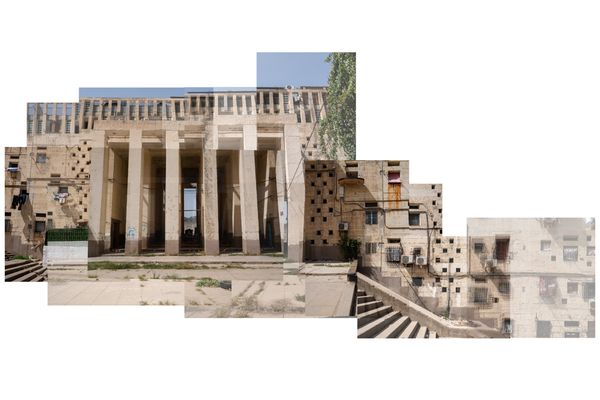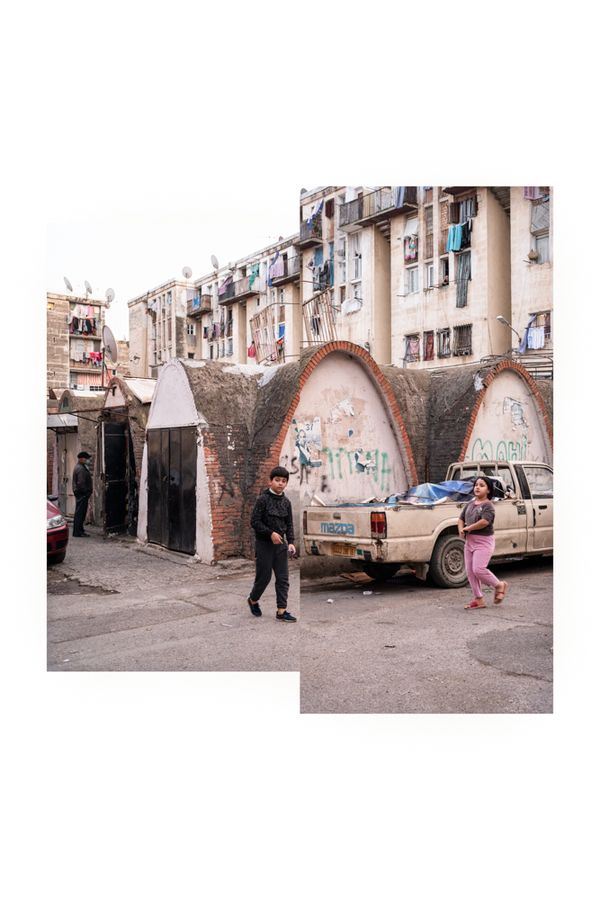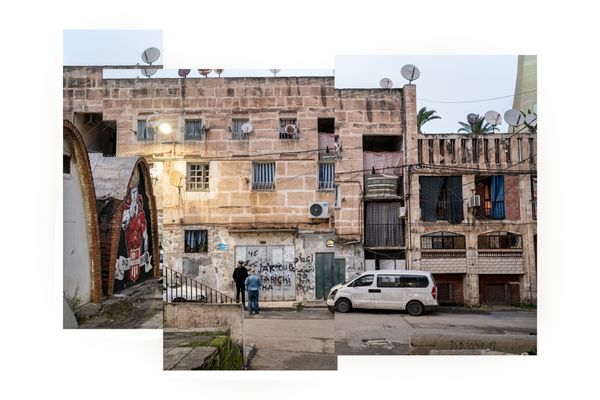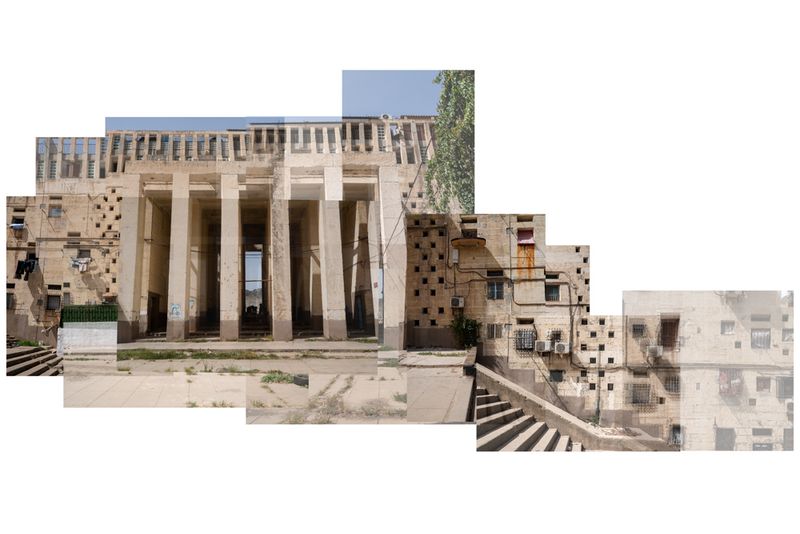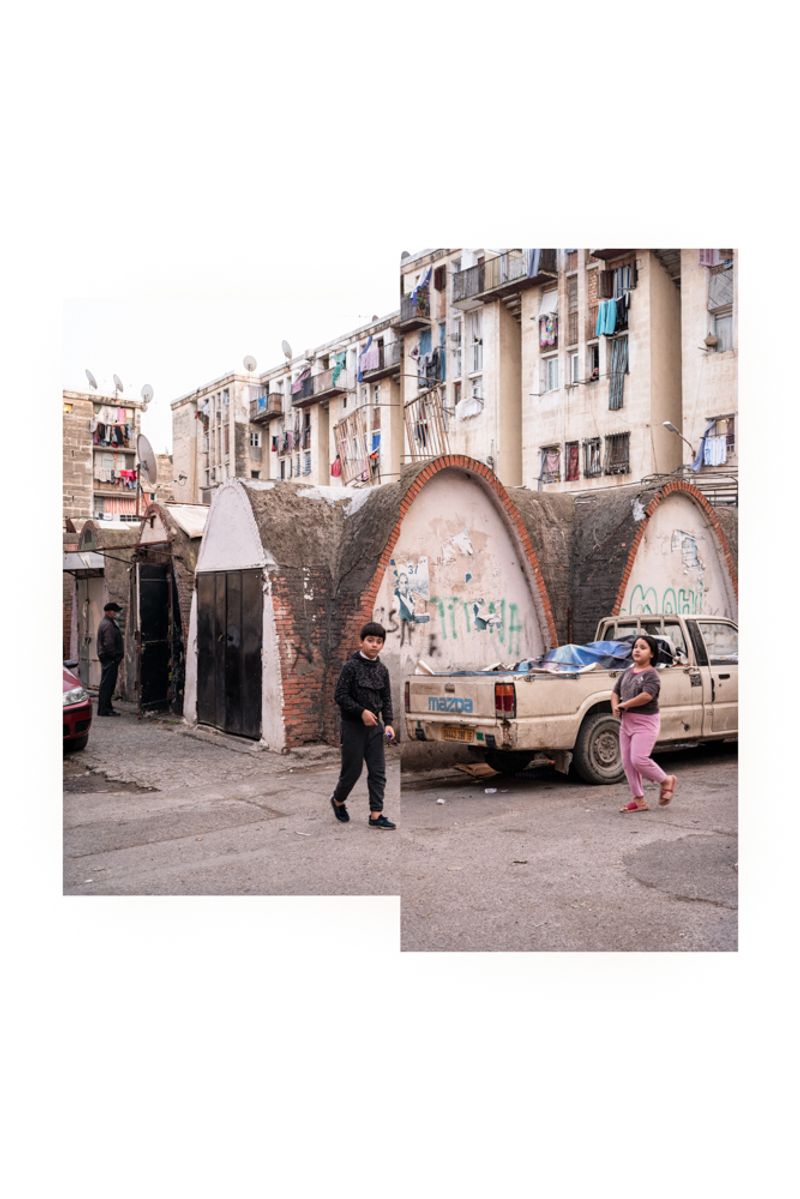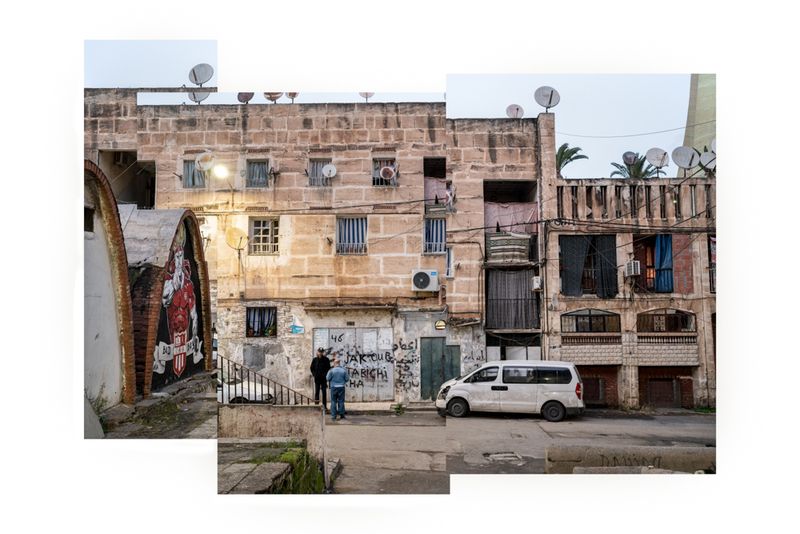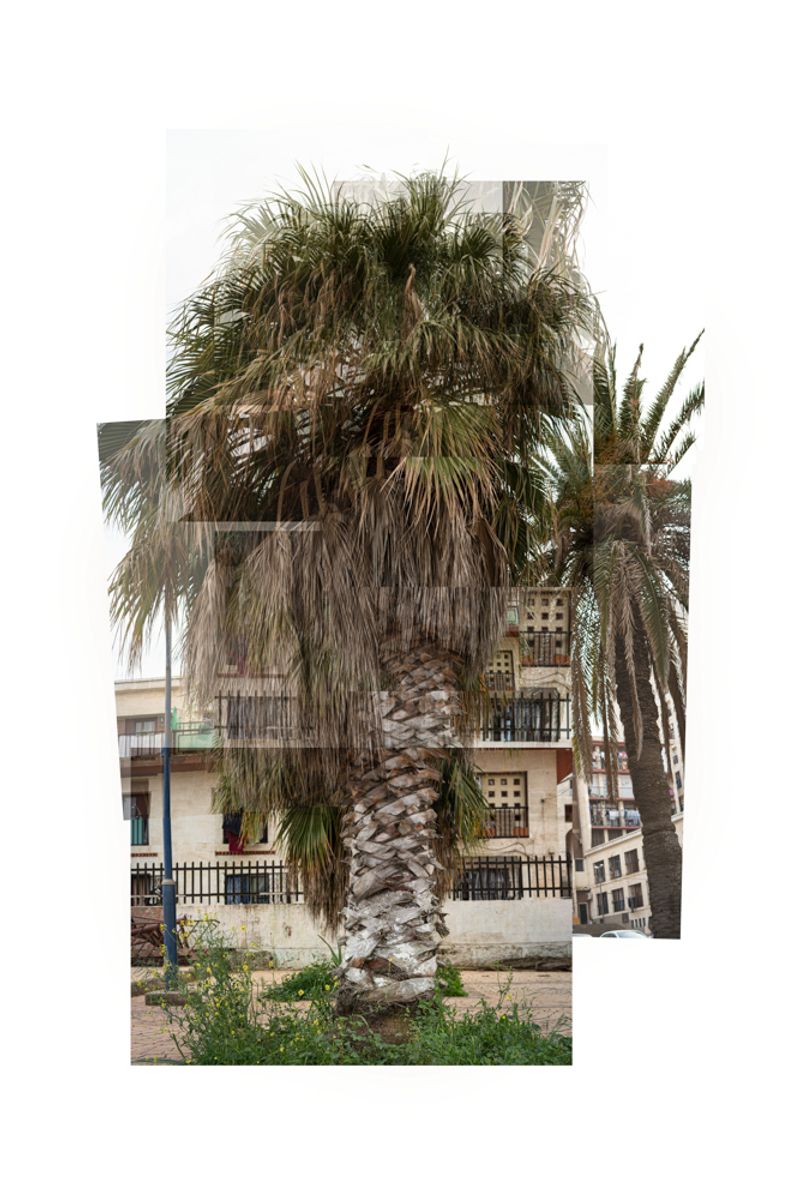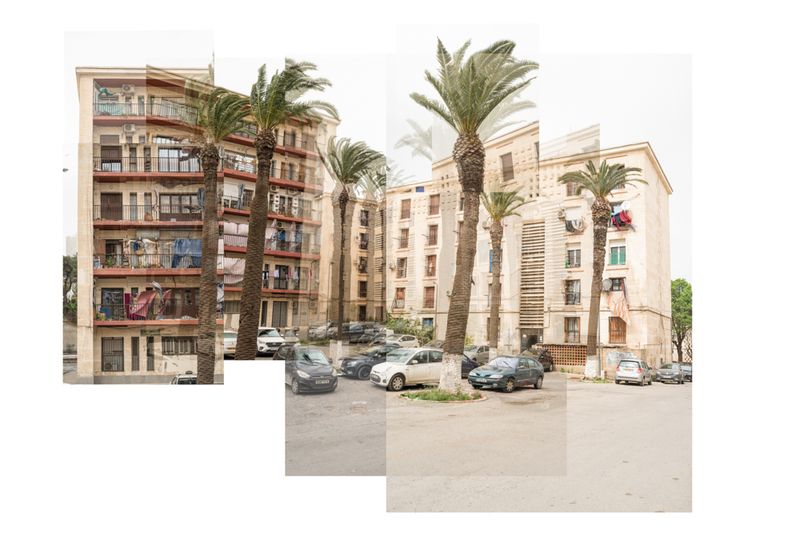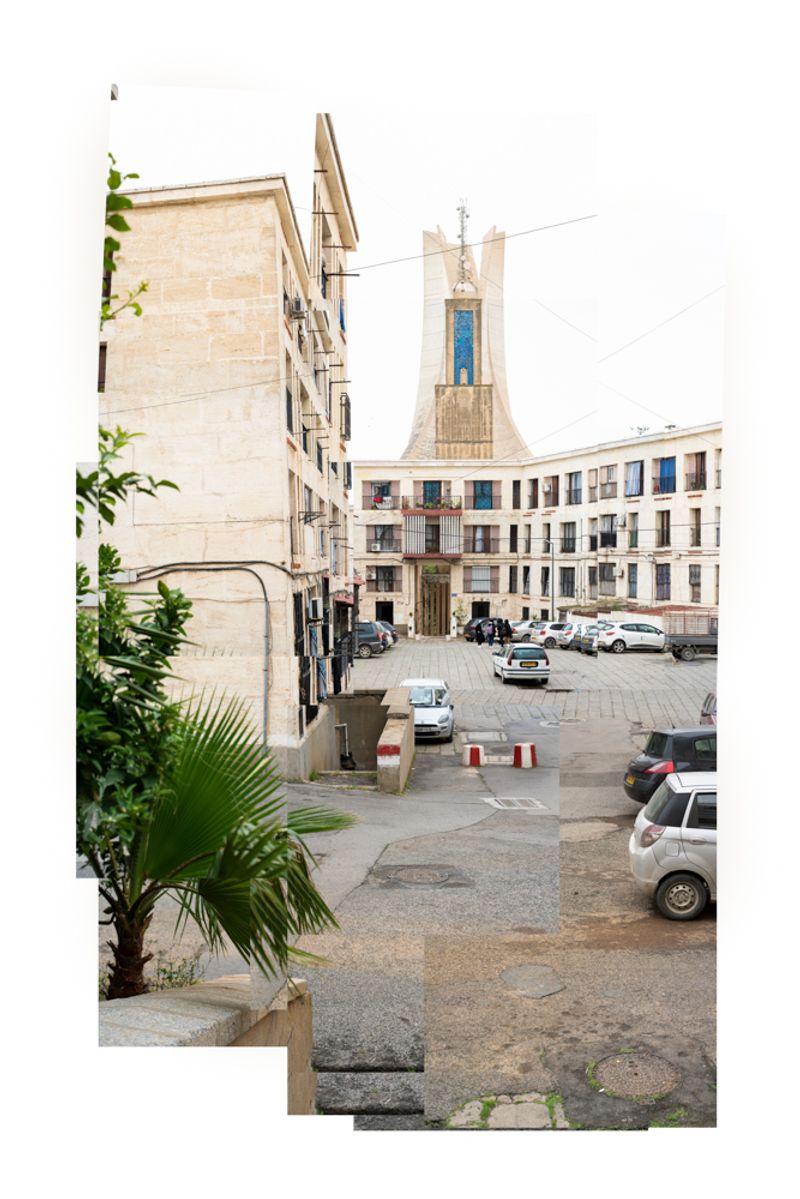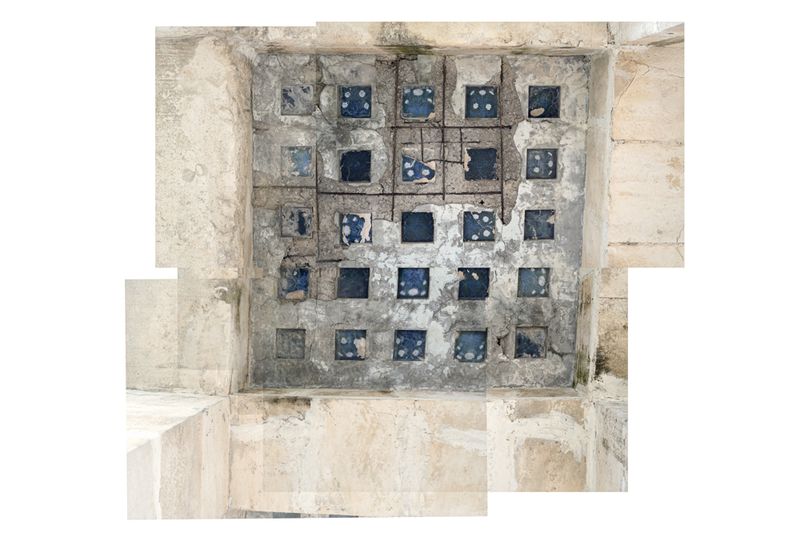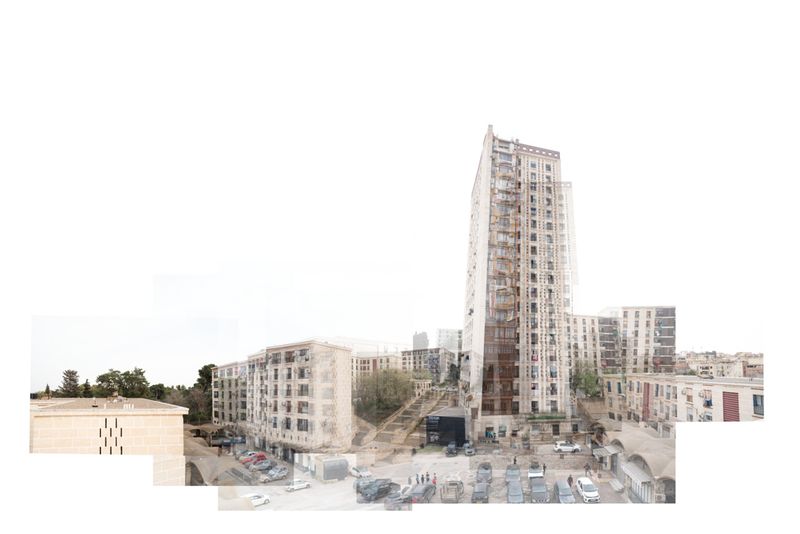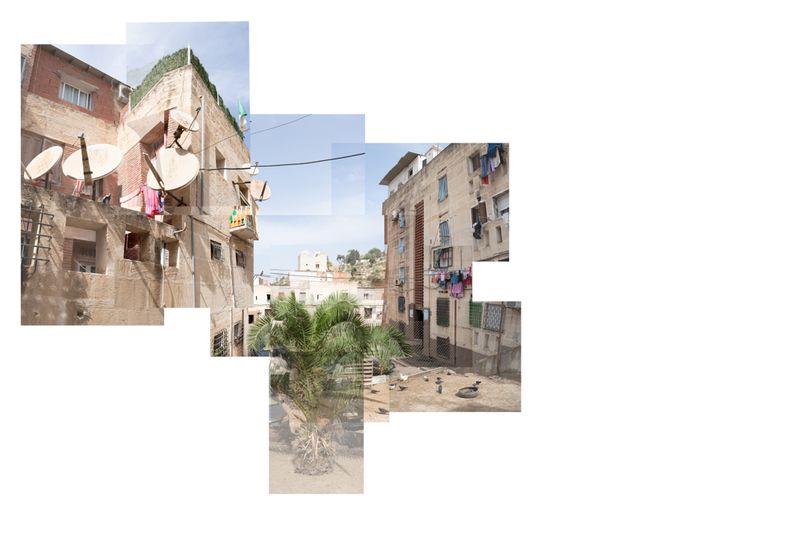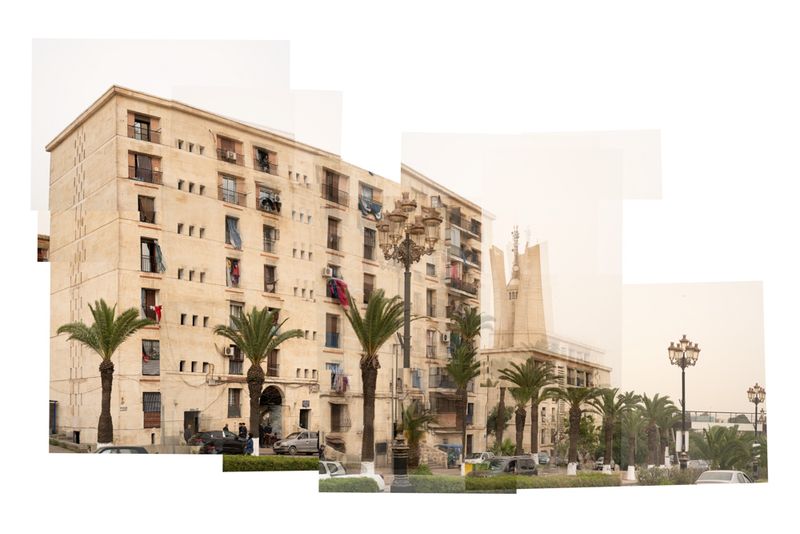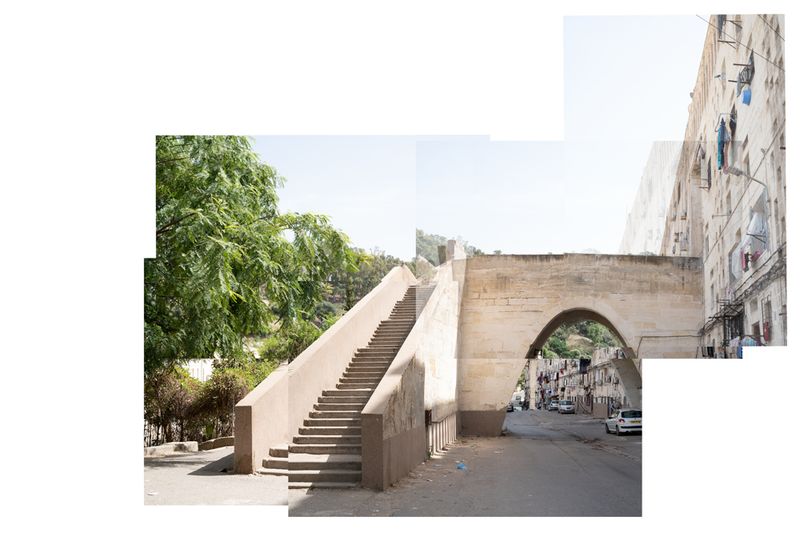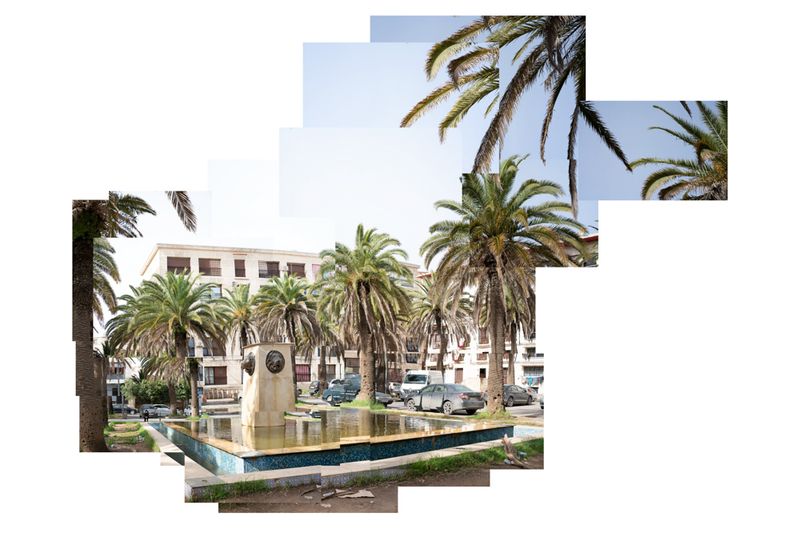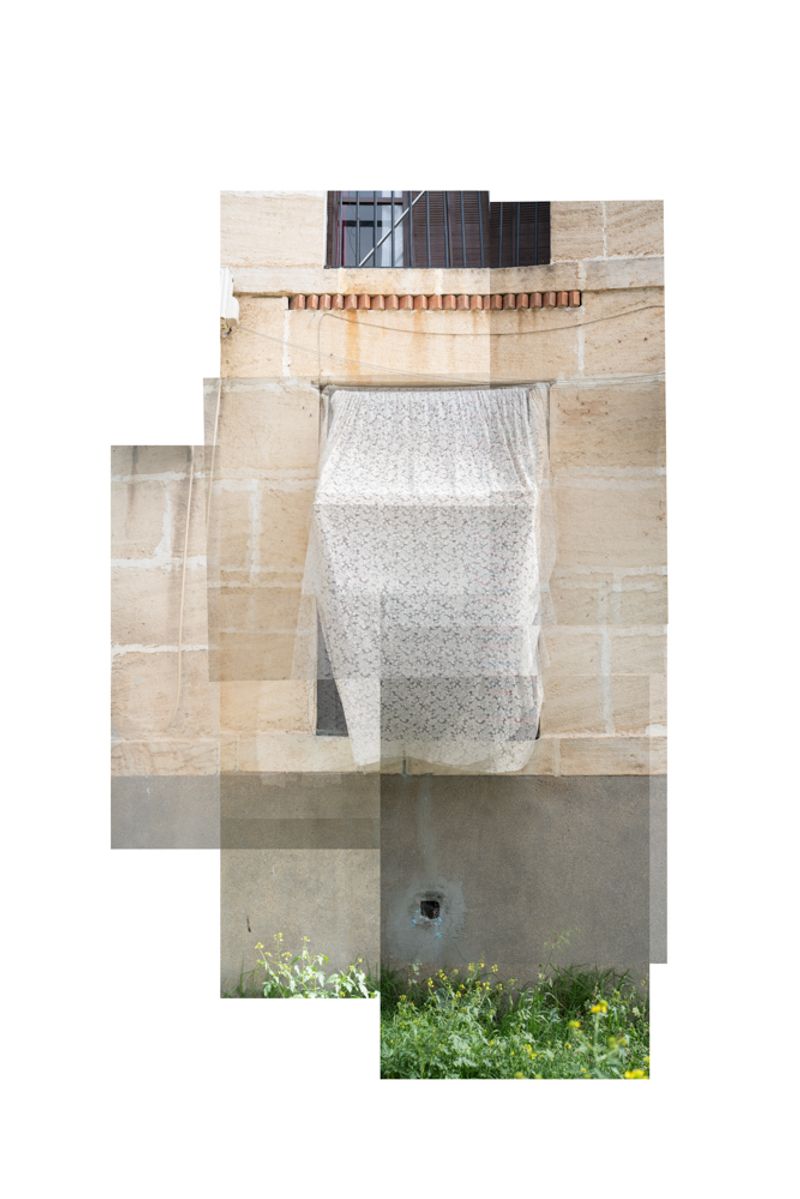Living on the ridge (temporary title)
-
Dates2022 - Ongoing
-
Author
- Locations Algiers, Algeria
We are in December 2018 and I am getting lost for the first time in the maze of the chaotically vibrant streets of Algiers. I start to see the shape of a different neighbourhood appearing. Satellite dishes are scattering the facades and the rooftops, thick carpets, wet and dry clothes are hanging from the windows, and a delicate grime seems to have been dusted here and there to cover the peel of the walls, just like elsewhere in the city. But something is different. The colour of the construction stones. They seem to change according to a mystical demand from the sun and the day mist, sometimes they are dazzling white, sometimes I see them deeply ochre. Since that moment I have been fascinated by what we call here ‘Les cités Pouillon’.
With "Living on the ridge" I want to discuss the complexity of the Algerian identity that has been built on the metaphorical and contradictory post-colonial injunction of building and destroying (Algeria was a French colony from 1830 to 1962). Being both French and Algerian, I can feel that permanent duality inside me. A tension that resonates with my own seeking for ‘Algerianness’. For these reasons, I am focusing my work on telling stories and engaging myself within four housing projects that were built by the architect Fernand Pouillon during the colonial time in Algiers (between 1953 to 1957).
These constructions are fundamentally and physically rooted in the Algerian history, its colonisation and its current days. They are symbols of the colonial architectural plan to control a territory and to enforce a segregational system. The approach of the architect himself was, in contrast, to create sets of life adapted to their inhabitants, their identity and the environments.
I am articulating this on-going project through visual techniques to deconstruct and reconstruct the images. These visual techniques are for me a way to symbolise our Algerian post-colonial tension. Using architecture and the life within it as a means of talking about the ongoing reconstruction of our identity, while deconstructing a heavy colonial heritage.
With this project, I aim to express my relation to the Algerian identity as much as I want to let people reclaim the narrative of their stories and their heritage.
